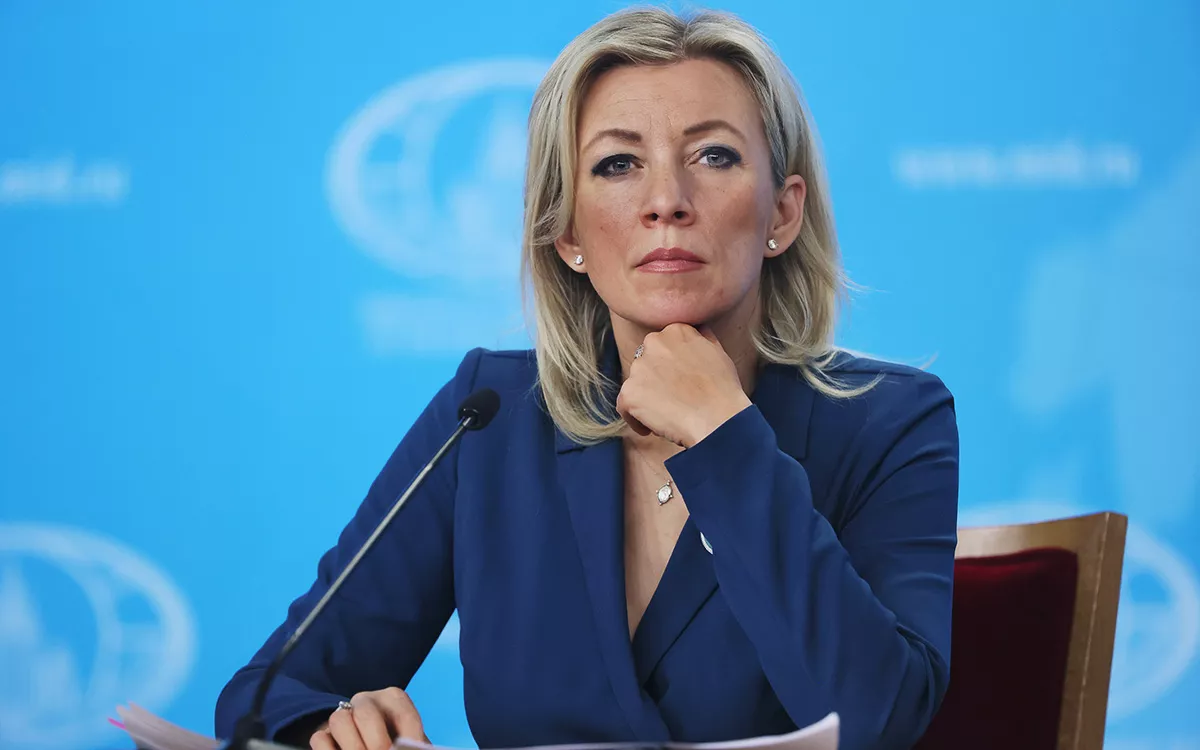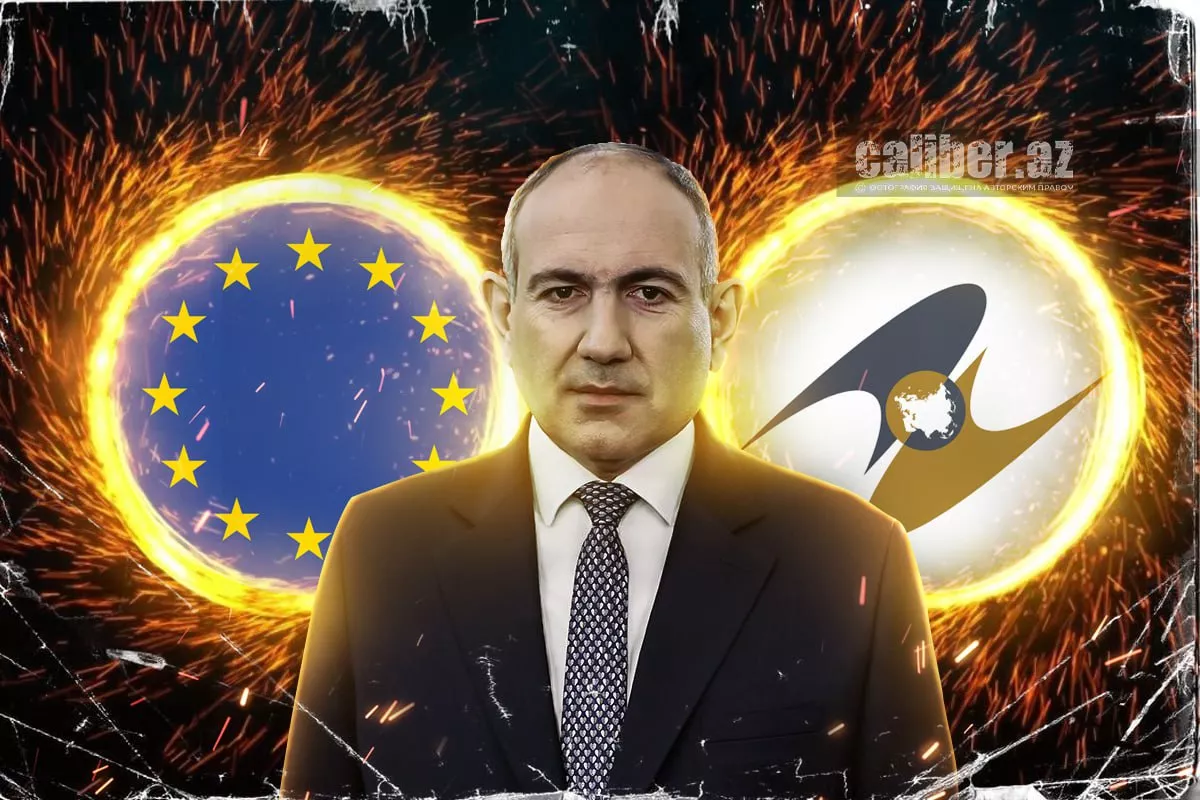Russia's new consulate in Armenia as element of strategic pressure Moscow has no intention of letting Yerevan go
Recently, the official representative of the Russian Ministry of Foreign Affairs, Maria Zakharova, clarified the issue of opening the Russian consulate in Gafan, noting that there are multi-faceted specifics on the matter. "We expect to reach specific agreements on the timing of the consulate's opening by May," the Russian diplomat said, assuring that the opening of the consulate will serve as a reliable guarantee for the dynamic, peaceful, and secure development of the Syunik region (Zangezur).
The issue of opening the Russian consulate has been discussed for nearly three years. In November 2023, the head of the Russian Ministry of Foreign Affairs' advanced group for the opening of the consulate in Gafan, Andrei Shanin, stated in an interview with an Armenian news outlet that the consulate was expected to open by the beginning of 2024.
"This is a very important step toward the start of real, practical work. We are proceeding from the assumption that, as planned, our consular office in Gafan will be operational by the beginning of next year," Shanin said at the time.

In November 2024, Maria Zakharova, commenting on the reasons for the delay in opening the Russian consulate in Gafan, stated: "The Armenian side has given its principled consent to the opening of the Russian consulate in Gafan, Syunik region. Accordingly, we are awaiting a response. Why and for what reasons the Armenian side has not yet sent us the corresponding reply materials is a question for Yerevan, not for us."
The Russian side effectively shifted the responsibility for the delay onto Armenia, signaling that it is Yerevan that is slowing down the process of opening the new Russian diplomatic mission on its territory.
Currently, in Armenia, there is the Russian Embassy in Yerevan and the Russian Consulate General in Gyumri, which was opened in October 2001. Gyumri also hosts the 102nd Russian military base, making the opening of the consulate in this city a logical step for Moscow.
In this regard, a reasonable question arises: what justifies the opening of a second Russian consulate in the small country of Armenia?
It is evident that, against the backdrop of Yerevan's pro-Western orientation, Moscow is seeking to strengthen its presence in Armenia to maintain its position in a republic that, since the collapse of the USSR, has played the role of a stronghold for Moscow for nearly thirty years.
Despite Armenia gaining new patrons in the form of the EU and France, Russia aims to demonstrate that Yerevan is still heavily dependent on Moscow in financial and economic terms and remains within the framework of Eurasian integration projects.
This is underscored by recent statements from Zakharova, indicating that the advancement of the economic agenda between the two countries in Syunik (Zangezur) is becoming increasingly significant within the framework of the Eurasian Economic Union (EAEU ).

Firstly, Moscow is already actively using the economic factor as a tool of pressure on Armenia. This is evident in Moscow’s open dissatisfaction with Yerevan's attempts to integrate into EU structures and "sit on two chairs."
Secondly, the opening of the Russian consulate in Gafan could be linked to the issue of unlocking the Zangezur Corridor, which is being obstructed by the Armenian side. It is important to note that the opening of the Zangezur Corridor is outlined in point 9 of the trilateral agreement of November 10, 2020, regarding the unblocking of transport communications.
Russia requires diplomatic presence in Gafan to closely monitor all processes occurring in the region within the context of the Zangezur Corridor. Additionally, it is crucial for Moscow to demonstrate to Armenia's Western partners that the trilateral agreements reached under Russia’s aegis must be strictly adhered to.

Leading expert of the Russian Council for International Affairs, Alexey Naumov, shared a similar view on Moscow's objectives in an interview with Caliber.Az: "In my opinion, the opening of the Russian consulate in Gafan is indeed of interest to Moscow in terms of unblocking transport communications in the region — between the two parts of Azerbaijan within the framework of the Zangezur Corridor.
There are conditions in the Trilateral Statement under which control of this communication should remain in the hands of Russia. It must be monitored by the border authorities of the Russian Federation. Moscow deems it necessary to have diplomatic presence in this region to always understand what is happening there and to objectively assess the situation.
We understand that demarcation and delimitation of borders between Armenia and Azerbaijan are ongoing nearby, and that this is an important part of a strategic region. This is probably why Russia believes it is essential to open its consulate in Gafan," the Russian analyst noted.
In his opinion, under the updated global order, Russia will continue to play a significant role in the South Caucasus, as evidenced by the upcoming opening of the second Russian consulate in Armenia.
"Armenian Prime Minister Nikol Pashinyan understands that his pro-Western course is facing certain difficulties, and it seems that for this reason, he has already given instructions to his government to engage in official meetings with Russia. For Moscow, it is now clear that Armenia has not turned to the West and will not do so anytime soon," concluded A. Naumov.








